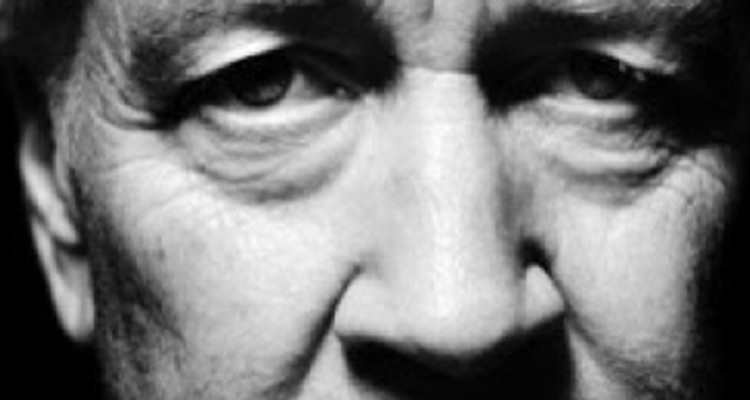When I’m in Big Sur I like to visit the Henry Miller Memorial Library. It has a unique tranquil setting in a field across the road from a cliff that overlooks the Pacific, and an eclectic book collection. These books are very different from what you might find at Indigo, shall we say – not your typical New York Times bestsellers. Many of the books are about self awareness, odd life adventures, uncommon lifestyles and enabling creativity - all things important to Henry Miller himself. From books on religion (both pro and against), painting, the morality of capitalism (again, good and bad), meditation and even homosexuality, the not for profit Henry Miller Memorial Library offers all readers an opportunity to find something outside of what they would typically see at a bookstore.
When I visited the library on my recent trip to Big Sur a few weeks ago I picked up David Lynch’s Catching the Big Fish subtitled, ‘Meditation, Consciousness, And Creativity.’ The title grabbed my attention right away, and I know David Lynch is an unconventional thinker. I love learning about outside-the-box-thinkers and their trials and tribulations and success. It’s inspiring. Reading about them gets my creative juices flowing.
Lynch’s creativity and unique approach to film has made him a world-renowned director and screen writer (he’s also a pretty respected actor, visual artist, and author) and I wanted to learn more about his creative process. His most popular films include: Eraserhead, Inland Empire, Mulholland Drive, Lady Blue Shanghai and Wild at Heart.
Just finishing the book last night, I want to share some of the things I learned that directly apply to entrepreneurs.
4 Things I Learned from ‘Catching The Big Fish’ by David Lynch
Creative moments are fleeting: Success as an innovator relies on the quality of your creative genius and learning to identify uniqueness in simplicity. Lynch explains how run-of-the-mill moments in life often enable the most creative ideas. But that these moments are rare, so don’t waste them. Act immediately.
As a filmmaker, Lynch would get ideas for his films in conversation with friends, walking down the street, watching a dog play - simple things. But when neat ideas came to mind, he’d record them and delve right in, stopping whatever it is he was doing.
Think about how many times you’ve had an idea… and never acted on it. Often, the difference between mediocrity and success is simply doing. Don’t let your ideas be forgotten. When they come to you, write them down and make a point of exploring them further that day. Don’t let ideas go to waste, they’re your entrepreneurial currency. And great ones don’t come around all the time.
Set up your work space to achieve greatness: Some people think it’s vain to dress your office up. I disagree. An so does Lynch. He stresses that as an innovator one must have a space they can go to immediately upon thinking of an idea and work on it. The space must bring you peace, clarity and comfort. Your environment enables creativity, or destroys it. A motivating work space gives pleasure, and that creates ideas.
Lynch also explains that you should keep your work space in ready position in case the mood strikes or an idea pops into your head that warrants immediate attention. Clean it up at the end of the day so upon your return you can get down to business. A cluttered desk is a cluttered mind…
The value of meditation: Meditation has always intrigued me. A Buddhist monk sitting cross legged in the freezing cold atop a mountain and being in pure bliss is what I think of when the word comes to mind… that’s probably why I want to learn more about it. It’s so foreign to me and I’m so ignorant as to how one meditates, yet I know it has tremendous value in self-development. I know those who are good at it have an edge to them. And when I saw the subtitle, combined with ‘Catching The Big Fish’ as the main title of Lynch’s book, I made the purchase. Interestingly, Lynch practices what is known as transcendental meditation. And when one becomes good at transcendental meditation, Lynch believes intuition can be sharpened and expanded. When intuition is improved, one’s problem solving abilities drastically increase.
Don’t let anything quell creativity: Lynch dedicates one chapter of his book to therapy. I loved this part. It is literally a one paragraph chapter, and it reads:
I went to a psychiatrist once. I was doing something that had become a pattern in my life, and I thought, well, I should go talk to a psychiatrist. When I got into the room, I asked him, “Do you think that this process could, in any way, damage my creativity?” And he said, “Well, David, I have to be honest: it could.” And I shook his hand and left.
Isn’t that just great? This man’s success, as is the case with many entrepreneurs, particularly in the publishing and tech industries, relied almost solely on his ability to create…his creative genius. No matter what issues he was dealing with at the time, he wouldn’t try and solve them at the cost of losing his creativity. Cherish your creativity and get rid of anything that hurts it.
David Lynch is an interesting man. He’s a different kind of cat. Very artsy, of course, yet extremely grounded. He writes very literally, yet is clearly a man who puts tremendous value on imagination. Not a typical book I read, but then again it was a Henry Miller Library purchase… that’s the beauty of that place. For any creative entrepreneurs, which should be everyone here, this is a book worth reading. Not necessarily a motivator, but it’ll get you thinking about how you enable your creative spirit, or possibly hinder it.
Stay hungry,

Aaron
P.S. Subscribe to my newsletter below and learn how to close big deals, identify golden opportunities and much more. Only my best content will land in your inbox.












